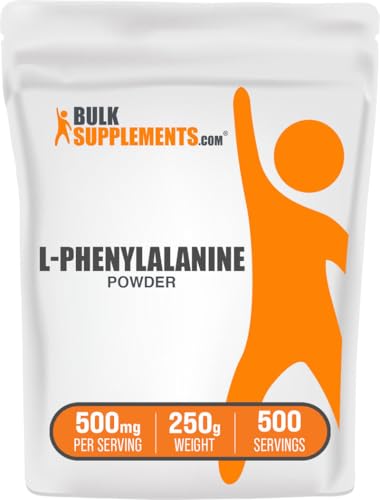PKU Diet: New Insights on Managing Phenylketonuria
Quick Summary: Research shows that a special diet low in phenylalanine, often with BH4 supplements, is key for managing Phenylketonuria (PKU). Medical foods and other treatments can also help, especially for adults.
What The Research Found
The main takeaway is that sticking to a PKU diet, which limits phenylalanine (an amino acid found in protein), is crucial. This often involves taking BH4 supplements, which can help some people better handle phenylalanine. The study also highlights the importance of medical foods designed for PKU patients to ensure they get the right nutrients. For adults, other treatments like large neutral amino acids (LNAAs) and phenylalanine ammonia lyase (PAL) might be helpful.
Study Details
- Who was studied: People with Phenylketonuria (PKU).
- How long: The research looked at existing knowledge and practices, not a specific time period.
- What they took: The study focused on dietary management, including low-phenylalanine foods, BH4 supplements, and medical foods.
What This Means For You
- If you have PKU: This research reinforces the importance of following your PKU diet closely. Work with your doctor and dietitian to make sure you're getting the right nutrients and managing your phenylalanine levels.
- BH4: Talk to your doctor about whether BH4 supplements might be right for you.
- Medical Foods: Make sure you're using medical foods as directed to get essential nutrients.
- Adults with PKU: Discuss other treatment options, like LNAAs or PAL, with your healthcare team.
Study Limitations
This research is based on existing knowledge and practices, not a new study with specific results. It emphasizes the importance of a PKU diet and other treatments, but more research is needed on the effectiveness of different treatments and long-term outcomes.
Technical Analysis Details
Key Findings
The study highlights that dietary restriction of phenylalanine and protein, combined with tyrosine supplementation and BH4 (tetrahydrobiopterin), remains the cornerstone of PKU management. It notes that medical foods help meet nutritional needs, while adjunct therapies like large neutral amino acids (LNAAs) and phenylalanine ammonia lyase (PAL) may benefit adults. Gene therapy is identified as a promising but underdeveloped area requiring further investigation. Emphasis is placed on interdisciplinary collaboration to optimize lifelong outcomes.
Study Design
The study is categorized as an observational study (as per the provided type), though the summary lacks specifics on methodology, sample size, duration, or statistical parameters (e.g., p-values, confidence intervals). The focus is on synthesizing current evidence and clinical practices for PKU management rather than presenting new empirical data.
Dosage & Administration
The summary does not specify exact dosages of BH4, phenylalanine restriction, or medical foods used in the study. BH4 supplementation and dietary adjustments are described as standard practices, but administration protocols (e.g., timing, formulation) are not detailed. LNAAs and PAL are mentioned as alternative therapies for adults but without dosing regimens.
Results & Efficacy
The study reports that dietary interventions effectively reduce phenylalanine accumulation, mitigating neurological risks. BH4 responsiveness varies among patients, with some achieving improved phenylalanine tolerance. Medical foods are noted to supply critical nutrients like tyrosine, energy, and protein while adhering to restrictions. However, quantitative outcomes (e.g., effect sizes, plasma phenylalanine reductions, p-values) are absent in the provided summary, limiting assessment of efficacy magnitude.
Limitations
The lack of detailed methodology, sample demographics, and statistical data in the summary restricts critical evaluation of the study’s rigor. As an observational study, it may lack controlled experimental design, introducing potential biases. The summary does not specify how BH4 responsiveness was measured or the comparative effectiveness of therapies. Future research directions include gene therapy and longitudinal studies to assess long-term dietary adherence and adjunct treatments.
Clinical Relevance
For PKU patients, this study reinforces the necessity of strict, lifelong phenylalanine restriction and BH4 supplementation where applicable. Supplement users should prioritize medical foods to avoid nutritional deficiencies while managing amino acid levels. Adults may explore LNAAs or PAL under professional guidance, though evidence for these interventions remains less defined. Clinically, the findings underscore the importance of personalized, multidisciplinary care (e.g., dietitians, geneticists) to balance metabolic control and quality of life. However, the absence of dosing guidelines or statistical evidence in the summary limits actionable insights for supplementation protocols.
Note: The analysis is constrained by the limited details in the provided study summary. Full access to the original paper would be required to evaluate specific quantitative results, sample characteristics, and statistical significance (e.g., p-values, confidence intervals).





